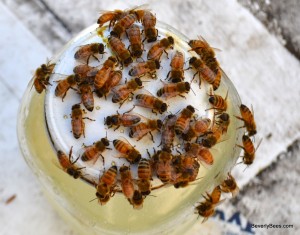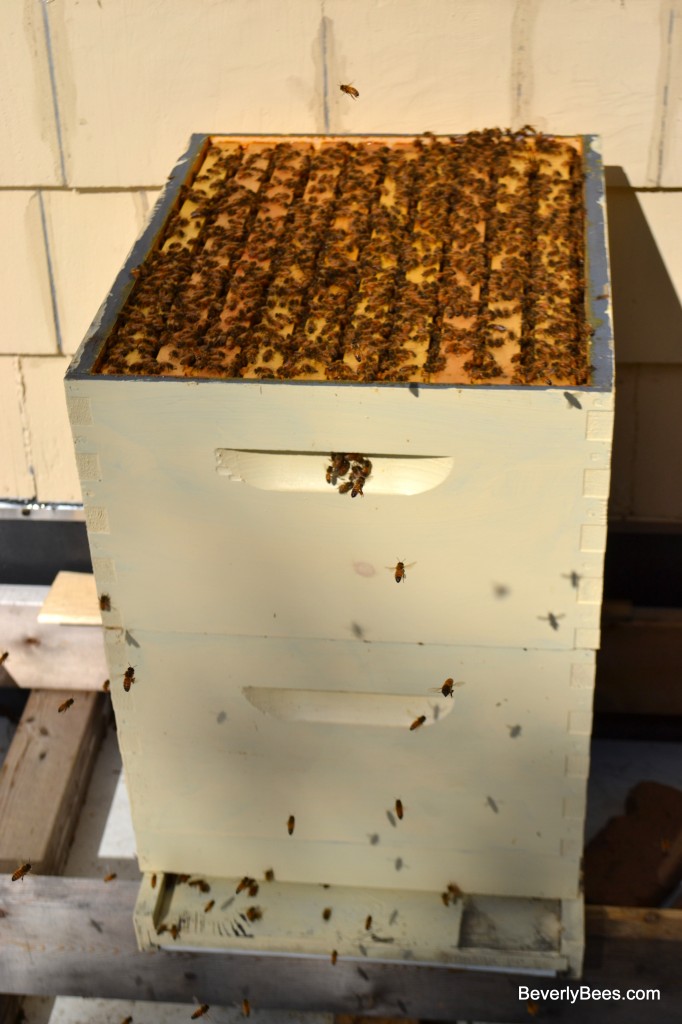There are layers and layers of bees on every frame, but where is all the honey?
Those thoughts keep popping through my head as I dump another empty 50 lb bag of sugar in the trash. I know we’ve had our problems, but come on girls, I thought you were supposed to be feeding me, not the other way around. 50 lbs of sugar in a week? At this rate, I’m going to need a part-time job to pay for all this sugar.
During my beekeeping class, they mentioned it would take 2 years to get honey in New England. The first year you start your bee colony, the bees need to spend the short time they have before winter getting their hive ready. They need to build wax on 20 frames, so they can lay eggs and raise more bees to help them. Bees also need to gather enough nectar and pollen to make 10-12 frames of capped honey, so they have something to eat during the winter. They need this to survive those long freezing cold months when they cannot fly. Therefore, I knew it was unlikely I would get any honey this year. Unless, I was lucky, or was amazingly talented like my friend Joyce, whose bees are just completely proficient and never cease to amaze me.
After the swarm, I knew I was even less likely to get honey this year, but I never expected my bees would need to be fed all year long. For my first year as a beekeeper, that is what happened. Most of my friends were able to stop feeding. But my bees never completed drawing out the wax for the 20 frames required for the brood chamber, so I could not stop the sugar syrup. The syrup helps the bees make the wax faster. Now the fall is coming, and the bees need to stock up on medicated syrup to help them manage the long cold winter.
Bees do not hibernate or die in the winter but in fact live in the hive huddled in a ball all winter long. They use their bodies to vibrate and generate enough heat to get the hive temperature all the way up to a balmy 94-98 degrees F, if needed. It can be 16 degrees outside and yet the bee cluster can still be in the upper 90’s. To keep the temperature this warm the bees need a lot of food stored nearby. If they leave the cluster for any length of time, they will freeze to death. So they spend the latter part of summer and fall organizing all their honey stores, to be available and within reach, when they form their winter cluster.

Since my bees are a little slow, they have not built up the stores they need. They don’t have the time or the bee power to make up for all their shortcomings. The doting beekeeper that I am, I must “feed, feed, feed” is the mantra and for me that has meant 50 lbs of sugar in a week. (Minus what we used at home making jams, cause you can never have enough you know.) Where are they putting it all? I can’t help but wonder. I guess it’s honey for thee but none for me.

